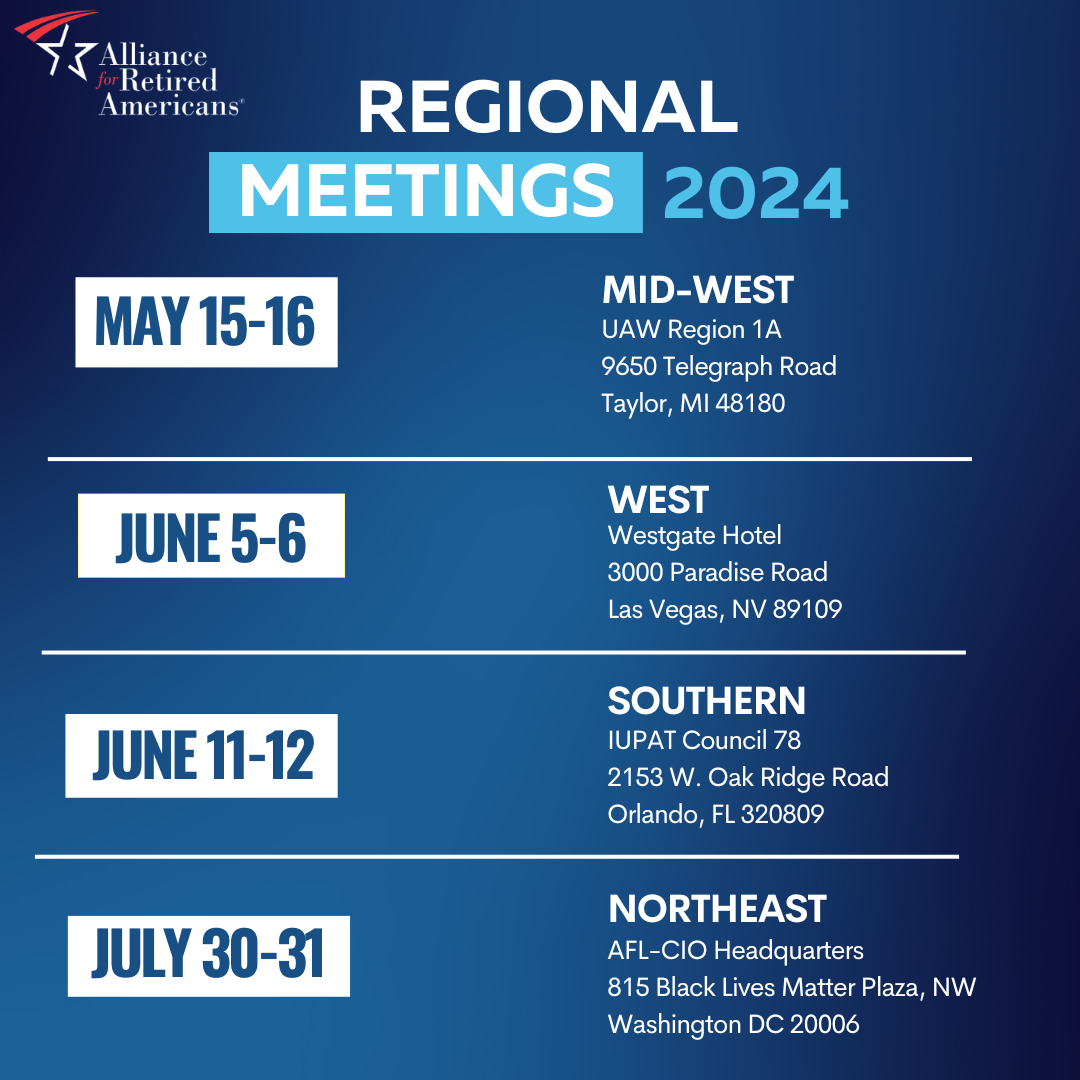|
|
House Republican Budget Framework Would Cut $1.5 Trillion from Social Security, Raise Retirement Age to 69 |
|
A new budget endorsed by a large and influential group of House Republicans calls for raising the Social Security retirement age and ending Medicare’s guaranteed health care benefits and replacing it with a payment toward the cost of private insurance called "premium support.” |
|
The budget was released Wednesday by the Republican Study Committee (RSC), a group of more than 170 House GOP lawmakers, including many allies of Republican presidential nominee Donald Trump. |
|
|
The RSC budget also strip’s Medicare power to negotiate lower prices on prescription drugs.
"This budget – combined with Donald Trump’s recent comments about cutting Social Security and Medicare – is a direct attack on the benefits we worked a lifetime to earn,” said Richard Fiesta, Executive Director of the Alliance. "Republicans have told us what they will do if they take control of Congress and the White House next year. Retirees need to get engaged and help defeat these politicians who have made it clear they don’t care about older Americans.” |
|
Shortage of Geriatricians Can Make Finding the Right Doctor Hard for Seniors |
|
Research suggests geriatricians more effectively manage older patients’ care, but factors including ageist stereotypes, lack of school programs, and lower salaries are dampening interest in the field.
People over 65 need more health care services than other age groups and make up nearly half of people admitted to the hospital. However, there are only 7,300 board-certified geriatricians in the United States, which is fewer than 1 percent of all physicians, according to the American Geriatrics Society. By contrast, more than 60,000 pediatricians were practicing in 2021, according to the Association of American Medical Colleges (AAMC).
Geriatrics only became a board-certified specialty in 1988, and accredited medical schools aren’t required to teach geriatrics — so many don’t.
However, research suggests that geriatricians more effectively and efficiently manage older patients’ care than doctors without such specific training — leading to lower inpatient death rates, shorter hospital stays and reduced patient costs.
For instance, some doctors don’t understand that what may appear to be a new symptom or problem is actually an adverse effect of a drug, which in younger people wouldn’t cause that.
“Older Americans have unique health care needs and deserve specialists who know how to best treat them,” said Robert Roach, Jr., President of the Alliance. “We call on Congress to create incentives and encourage more physicians to become geriatricians and ensure all doctors receive at least some training in the care of older patients.” |
|
Bill Would Stop Medicaid from Targeting Family Homes Following the Death of a Loved One |
|
Criticism is mounting over Medicaid's estate recovery process, which can take property away from families in need without warning following the death of a patient with Medicaid.
This month, Rep. Jan Schakowsky (IL), co-founder and co-chair of the House Democratic Task Force on Aging and Families, proposed scuttling the “cruel” program altogether. Critics of the status quo argue that many states fail to warn people who sign up for Medicaid that big bills and claims to their property might await their families after they die.
“Medicaid estate recovery often keeps families in a cycle of poverty, and it forces seniors and people with disabilities to go without care,” said Joseph Peters, Jr., Secretary-Treasurer of the Alliance. “That is why the Stop Unfair Medicaid Recoveries Act of 2024 would repeal the federal mandate requiring state Medicaid programs to go after families and estates for repayment of Medicaid long-term care services.” |
|
Save the Dates: 2024 Regional Meetings |
|
Prepare for this year’s elections by attending the 2024 Alliance for Retired Americans Regional Meetings beginning in May. During the meetings, four Alliance Executive Board Members from each Region will be elected. The meetings will be an excellent opportunity to strengthen your skills as a retiree activist. Attendees will participate in interactive workshops and training sessions on:
|
|
|
Thanks for reading. Every day, we're fighting to lower prescription drug prices and protect retirees' earned benefits and health care. But we can't do it without your help. Please support our work by donating below. |
|
|
|
|
Alliance for Retired Americans | 815 16th Street, NW | Washington, DC 20006 | www.retiredamericans.org

.png)

